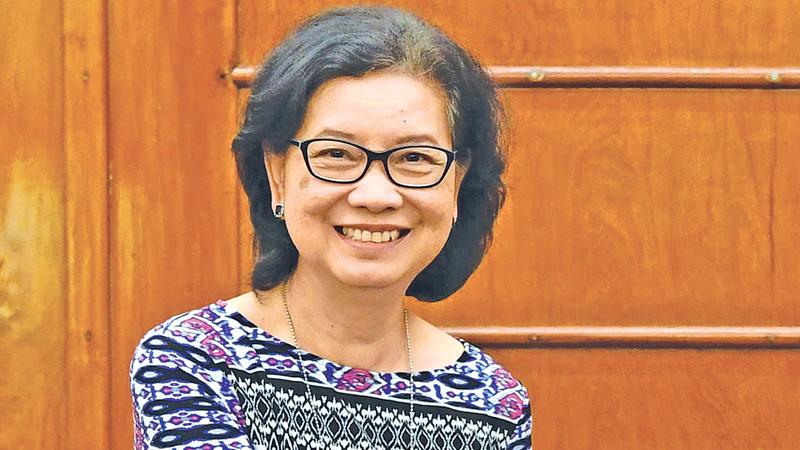
The Asian Development Bank (ADB) will support developing countries to achieve inclusive growth which also includes gender equality and social inclusion.
In the context of South Asia, improving gender equality and empowerment is important and the role played by the smart grid and the decentralisation of power supply will support the ever increasing energy demand, ADB Sri Lanka Resident Mission Country Director Sri Widowati said.
“We should look into how best the latest technologies could support the increase in power demand in terms of affordability and accessibility. We need to strengthen the drivers of growth where the economy could benefit,” she said.
The Bank conducted a workshop on smart grid technologies and implications for inclusive development last week in Galle with collaboration with the Melbourne School of Engineering.
“We have failed to understand the social system within the institutional framework and this has led to many issues related to the society. In is necessary to be mindful how the social system could be build in to the technical system where the emerging trends could be observed. The smart grid is relevant to everybody and Sri Lanka’s entire power system will be converted to smart grid technology in future,” Ministry of Power and Renewable Energy Secretary Dr. B.M.S. Batagoda said.
“Sri Lanka has already launched a pilot project to introduce smart meters. We are moving to the next level of power generation which will focus on quality and high standard,” he said.
Smart grid technologies create low carbon development where it is the core in energy sector. The need was highlighted in moving towards low carbon energy systems which are sustainable, reliable and secure and affordable.
“Smart grid systems are cheaper. The weakness in the marketing mechanism and regulatory system failures in low carbon energy models are a drawback in this regard. The engineering model often fails to capture socio-economic aspects where in demand side flaws electricity markets have mostly failed to involve consumers,” the University of Melbourne, School of Engineering, Electrical Power System Chair, Pieriugi Mancarella said.
Highlighting the need for smart grid applications in developing countries, he said that gender and social inclusion related to energy linkages, policies, strategies and practices.
“Renewables may severely affect consumers, particularly in terms of affordability and weak regulations. There are many challenges and risks involved in smart grid technologies, but a balance between the negative and positive aspects will lead to negate value chain complexity,” he said.
ICT can play an important role in power generation and energy efficiency. The nature of the problem is changing. For the utilities adopting smart grid technology is an option.
Society is undergoing a transformation. However, it lacks a degree of automation. Smart grid technologies will not only contribute to utilities, but to society and consumers.
Asia’s low carbon energy transition is well underway. However, the smart meter penetration in the region is low. Measures must be taken to transform living conditions for the better. The energy services can improve women’s economic empowerment.
“Sri Lanka has a male dominated energy sector. We need to create more awareness to attract females to the sector. This process needs to happen at the school level. With regard to the university education, non-engineering fields are preferred by the students,” Ministry of Power and Energy Director Sulakshana Jayawardena said. The government’s strategy is to develop private sector utility plants which are commercially viable. More emphasise is paid to solar power generation where there will be 200 MW added to the grid by 2020.
The Ceylon Electricity Board (CEB) has invested Rs. 5 billion on the National Electricity Program where 99.7 percent of the electrification of the country has been achieved,” he said. The modern energy services and technological empowerment provide women a greater power for economic development.
The government ensures that proper energy mix is selected and its key concern is the energy security and affordability for the consumers at all times, he said emphasizing the fact that the government is committed to deploy smart grid technologies which has low carbon emission.
